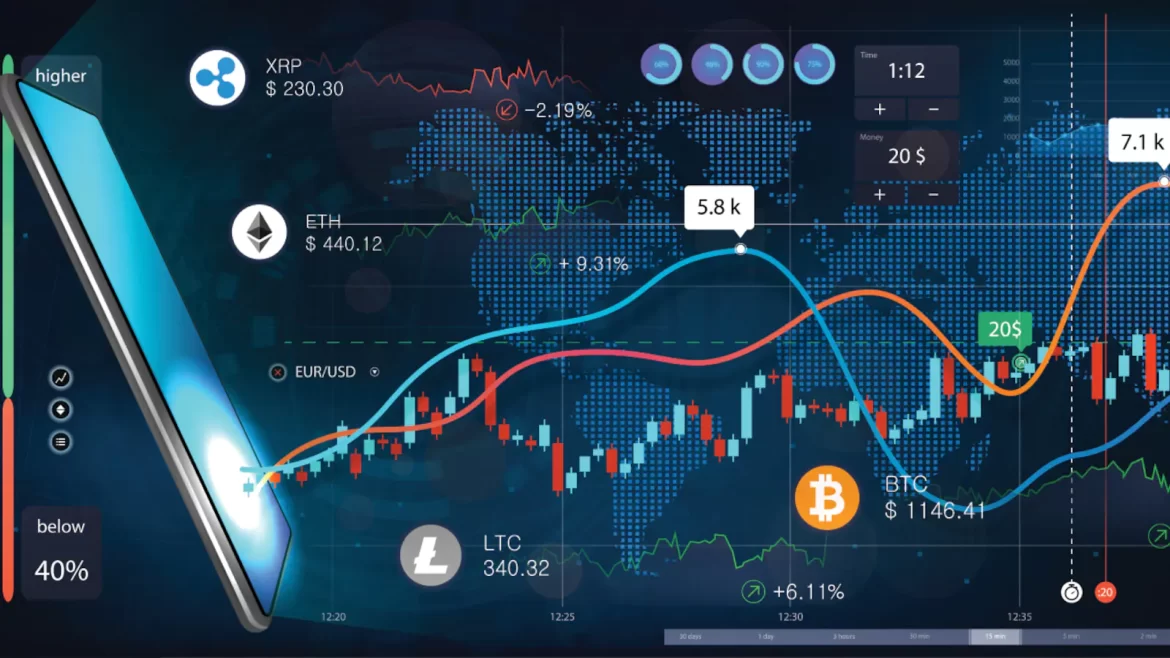A cryptocurrency app provides users with tools for trading, investing and managing their crypto. Some feature beginner friendly interfaces and educational resources for new investors; others provide built-in wallets to protect digital assets against exchange hacks or theft.
Crypto apps should provide real-time rate data pulled from multiple exchanges, as well as providing advanced analytic tools.
Investing
Investing in cryptocurrency is an increasingly popular hobby, yet it presents its own set of risks. Unlike stocks, crypto assets don’t represent hard assets with cash flows to back them up and are therefore entirely speculative – this makes understanding all aspects of investing your hard-earned cash essential before beginning this venture.
Cryptocurrency trading apps allow users to monitor and trade cryptocurrencies such as Bitcoin and Ethereum. Furthermore, these applications offer features tailored specifically towards both novice and expert traders alike. For instance, Binance offers copy trading to new investors in addition to offering services such as leverage/margin trading, staking and swap farming.
Some cryptocurrency trading apps also provide real-time insights and market analysis for users, which is particularly helpful for novice traders navigating an unpredictable marketplace. Furthermore, many crypto trading apps are highly secure; most require you to undergo identity verification prior to depositing funds into their accounts.
Trading
Cryptocurrency trading apps allow users to buy and sell cryptocurrency. Some applications even provide customer service options like chat or email which may prove invaluable to investors. It is wise to investigate each cryptocurrency trading app’s customer support policies prior to depositing your funds with any one app.
These apps also boast user-friendly interfaces that make navigating easier for users and minimize costly mistakes. Many also come equipped with real-time news updates and insight into regulatory updates.
Binance is a popular trading app with low transaction fees and an extensive portfolio of assets to trade, as well as massive liquidity to safeguard traders against price slippage in volatile markets. Social trading features on Binance as each asset has a dedicated feed with posts from customers about it – users can then like or comment on these posts by other customers. Furthermore, Binance supports various funding methods including credit/debit cards and bank transfers.
Wallets
Crypto wallets provide users with access to their digital assets by holding onto private keys that grant access. Furthermore, wallets allow for transactions management, balance monitoring, and the integration of decentralized applications (dApps) that require using one for identification purposes.
Users should seek a wallet that provides strong security features, such as encryption, two-factor authentication and password-protected interface. Furthermore, it should support multiple blockchain technologies. Furthermore, users should look for a firm that offers comprehensive customer support in terms of phone and Discord assistance.
Wallets come in many forms, from physical hardware wallets that resemble USB sticks to online services offering secure custodial storage of users’ assets. Some, like Trust Wallet, partner with exchanges so users can buy and sell crypto directly through the wallet while others, such as MetaMask, allow users to earn interest on coins they own through them by participating in blockchain games or even collecting NFTs. Users should keep in mind that any cryptocurrency held within a wallet must pass through probate after death.
Education
Blockchains provide educational institutions with an efficient solution for managing time and cost associated with tasks like student record storage and sharing. Blockchain technology makes these processes simpler and more cost-effective while automating some tasks for students – for instance, one supporting smart contracts could allow teachers to program lessons or courses which then execute automatically when certain conditions are met.
This would ensure students receive high-quality education and that the records of their achievements remain true and uncorrupted. Furthermore, smart contracts could be programmed to award crypto tokens or credits when completed tasks are complete; teachers could further reward high performers with special recognition credits.
Cryptocurrency has emerged as an international phenomenon with an estimated market capitalisation of over $2 trillion, making it vital for young people to understand its new financial landscape.








